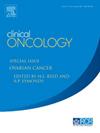英国临床肿瘤学学术培训展望:全国横断面分析。
IF 3.2
3区 医学
Q2 ONCOLOGY
引用次数: 0
摘要
目的:人们对临床学术培训管道的关注由来已久,有证据表明临床学术职业发展存在多种障碍和促进因素。我们试图评估这些因素和其他因素在多大程度上适用于英国的临床肿瘤学学术培训:我们使用定制的、预先筛选过的在线电子问卷进行了一项横断面调查,调查对象为临床肿瘤专科受训人员和顾问,他们在 2013 年 1 月至 2024 年 1 月期间的任何时候都曾在受训期间担任过学术职务。整理的信息包括人口统计学数据、培训地点和阶段、研究经验和抱负、研究技能信心和学术职业发展:共有 70 份符合条件的答复,占英国培训学院院长总数的 84% (n = 16/19)。37名受访者(53%)已获得培训结业证书(CCT),11%(n = 8/70)和40%(n = 28/70)的受访者处于专科培训生水平,分别处于博士前期或博士中期/博士后学习阶段。在 34 名 CCT 后受访者中,58%(n = 20)有持续的研究任务,但只有 30%(n = 10)的研究任务占其总活动的 30%。学术发展的障碍包括临床培训要求、职位空缺和导师有限。大多数受访者(60%;n = 35/58)在最后两年的培训中攻读博士学位。大多数受访者对与其职业理想相关的放射肿瘤学(RO)技能缺乏信心,分别有60%、40%和30%的受访者对RO临床研究结果评估、体外辐射分析和使用RO动物模型缺乏信心:这些数据提供了对全国临床肿瘤学学术培训的长期细致分析;确定了在独立研究方面的不良进展,其突出表现是对区域研究员研究技能的信心有限以及学术职业发展的多重障碍。这些数据为政策制定者、研究资助者和培训计划提供了可重点关注的领域,以改善临床肿瘤学的学术培训。本文章由计算机程序翻译,如有差异,请以英文原文为准。
Perspectives on Academic Training in Clinical Oncology in the United Kingdom: A National Cross-Sectional Analysis
Aims
There are longstanding concerns relating to clinical academic training pipelines, with evidence for multiple barriers and enablers to clinical academic career progression. We sought to assess the extent to which these and other factors apply to academic training in clinical oncology in the United Kingdom.
Materials and methods
A cross-sectional survey was undertaken using a bespoke, pre-piloted online electronic questionnaire that was distributed to clinical oncology specialty trainees and consultants who had at any point between January 2013–January 2024 commenced an academic post whilst in training. Collated information included demographic data, location and stage of training, research experience and ambitions, research skill confidence and academic career progression.
Results
Seventy eligible responses were included, representing 84% (n = 16/19) of UK training deaneries. Thirty-seven (53%) of the respondents had obtained their certificate of completion of training (CCT) whilst 11% (n = 8/70) and 40% (n = 28/70) were at specialty trainee level and respectively pre- or within-/post-doctoral studies. Of 34 post-CCT respondents, 58% (n = 20) had ongoing research commitments but this reached 30% of their overall activity for just 30% (n = 10). Barriers to academic progression included clinical training requirements, post availability and limited mentorship. Most (60%; n = 35/58) undertook doctoral studies in their final two training years. A majority of respondents lacked confidence in radiation oncology (RO) skills relevant to their career ambitions, with 60%, 40% and 30%, respectively, confident in RO clinical research outcome evaluation, in vitro radiation analyses and using RO animal models.
Conclusion
These data provide a granular, long-term analysis of academic clinical oncology training at a national level; identifying poor progression to research independence underlined by limited confidence in RO research skills and multiple barriers to academic career progression. These data provide areas in which policy makers, research funders and training programmes can focus to improve academic training in clinical oncology.
求助全文
通过发布文献求助,成功后即可免费获取论文全文。
去求助
来源期刊

Clinical oncology
医学-肿瘤学
CiteScore
5.20
自引率
8.80%
发文量
332
审稿时长
40 days
期刊介绍:
Clinical Oncology is an International cancer journal covering all aspects of the clinical management of cancer patients, reflecting a multidisciplinary approach to therapy. Papers, editorials and reviews are published on all types of malignant disease embracing, pathology, diagnosis and treatment, including radiotherapy, chemotherapy, surgery, combined modality treatment and palliative care. Research and review papers covering epidemiology, radiobiology, radiation physics, tumour biology, and immunology are also published, together with letters to the editor, case reports and book reviews.
 求助内容:
求助内容: 应助结果提醒方式:
应助结果提醒方式:


